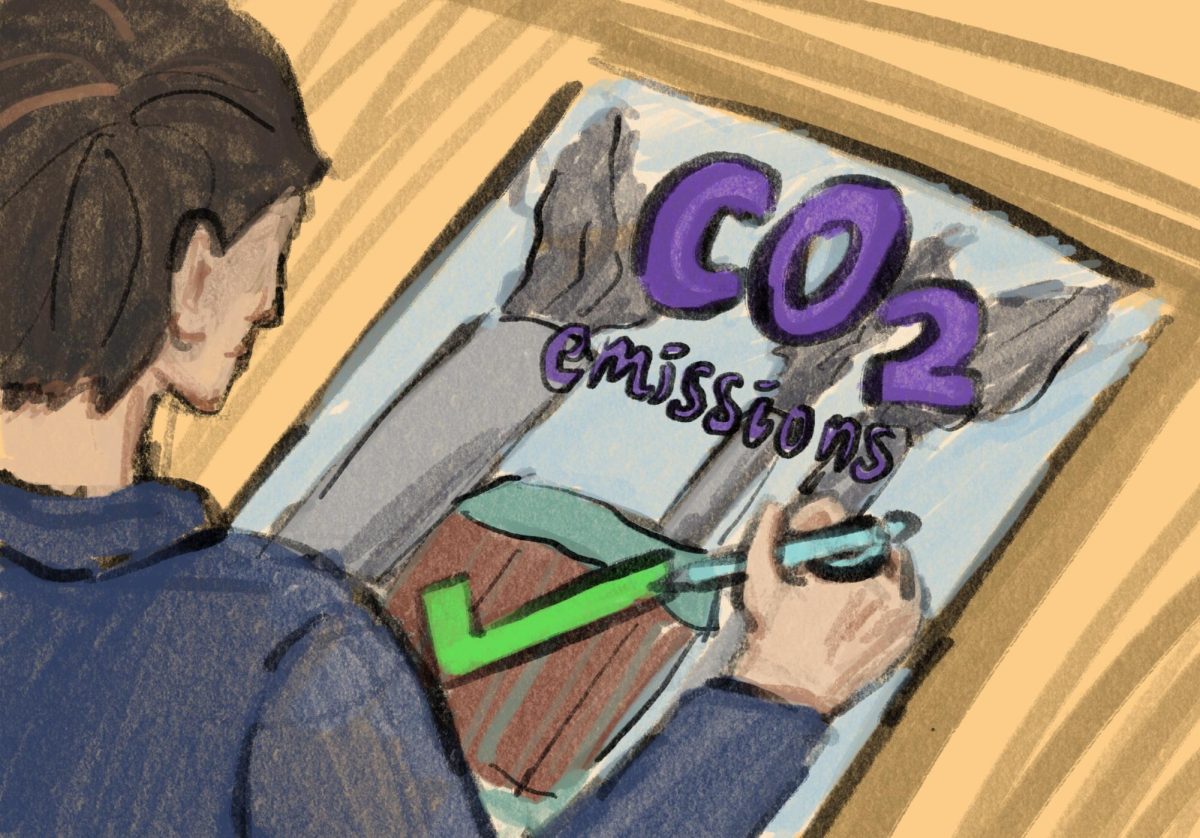Just a few years ago, American corporations had a compelling reason to reduce carbon emissions — government subsidies incentivizing the development of solar and wind-based energy.
Recently, companies have also felt increasing pressure from consumers and shareholders to become more environmentally friendly.
Major companies want to prove they are making efforts to be green, so demand has emerged for organizations, such as the Science Based Targets initiative (SBTi), to verify companies who make significant reductions to their emissions.
The “green” certification process, however, is deeply flawed. There is an utter lack of standardization and consistency in how companies like SBTi work with corporations to calculate their emission reductions. The government must act to legitimize claims that companies like SBTi make by overseeing how they evaluate and certify corporations.
To develop a better understanding of the approval procedures of organizations like SBTi, Nicolas Valette, a senior enterprise sales executive at Ampion PBC, which works with large corporations to reach their renewable energy goals through the installation of solar panels, spoke with Dwyer Ilick. Valette’s experiences with companies seeking green certification highlight the lack of standardization in this system.
This inconsistency stems from the broad range of methods authorizing companies use to quantify companies’ environmental impacts.
For example, Valette described an American franchise that only publicly counts greenhouse gasses released on-site at their municipalities, but not upstream and downstream effects of their productions, while simultaneously taking credit for off-site renewable energy generation that they indirectly finance.
Because of this variability in how corporations calculate their emissions, corporations can grossly underrepresent their carbon footprints and exaggerate their efforts to reduce these emissions.
Valette said “I totally see the gambit of companies. [Some] are working really hard, spending a ton of money to meet their goals, and some companies doing the bare minimum. And they’re messaging the same [outcome] to their customers.”
This creates a situation in which consumers can’t accurately differentiate between companies that make genuine environmental efforts and companies that simply pretend to.
Currently, the government’s only role in the system is adjudicating lawsuits regarding clearly fraudulent claims about carbon emissions. Beyond that, this system is subject purely to the forces of the free market.
The government should create stricter legislation against misleading and implausible claims about companies’ carbon emissions reductions.
Honest carbon emission reduction claims will allow consumer pressure to push companies to engage in genuine positive reform, as opposed to motivating them to engage in deception, which the current unregulated system is doing.
Government regulation of the emissions appraisals of American companies will unlock the potential of consumer and shareholder pressure to fuel the fight for climate reform.






